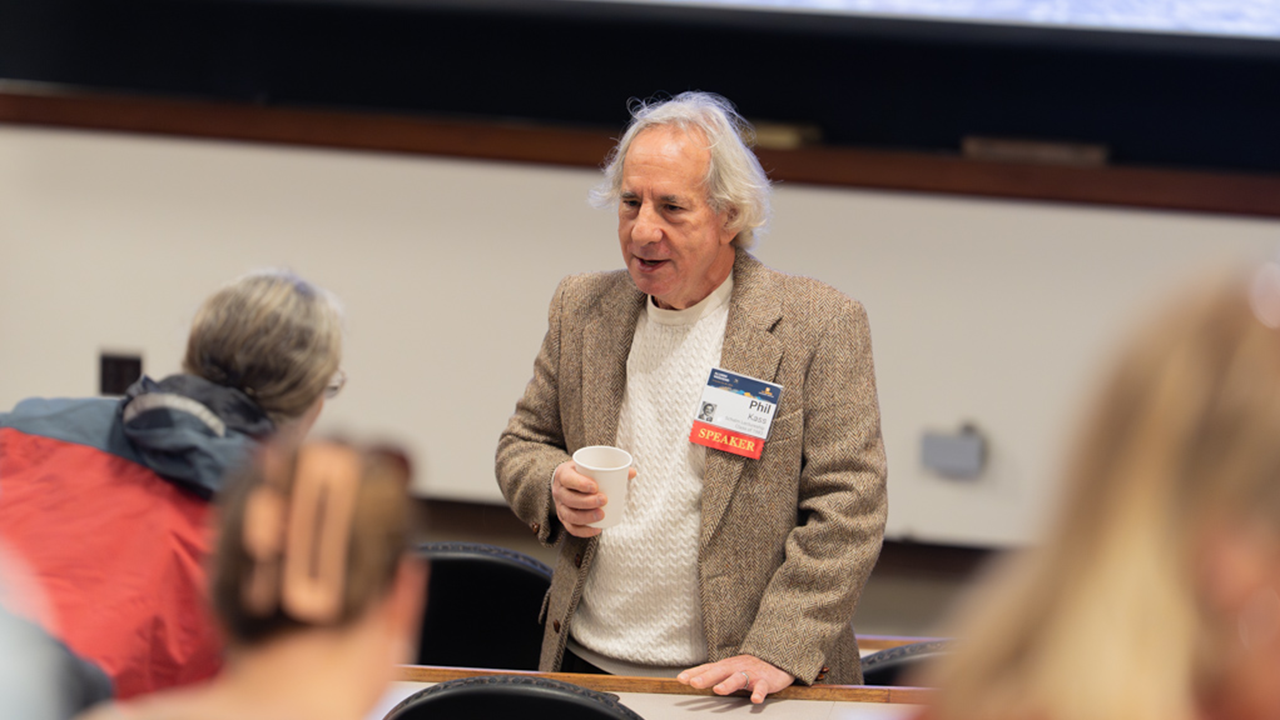
Solving Medical Mysteries: Dr. Philip Kass Delivers 2025 Oscar W. Schalm Lecture
Early in his career at the UC Davis School of Veterinary Medicine, Dr. Philip Kass received an unexpected visit from Dr. Peter Pascoe, an anesthesiologist with a troubling question. Several dogs had developed acute kidney failure after routine surgeries, and no one could explain why.
Pascoe suspected an antibiotic might be to blame—but how could he prove it? Kass, then a young faculty member with expertise in epidemiology and biostatistics, turned to the tools of his field: data, hypotheses, and careful statistical inference. His analysis confirmed the culprit—nafcillin— which the hospital had discontinued using upon suspicion it was the cause of the outbreak. The outbreak ended as suddenly as it had begun.
“Knowing the right techniques and appreciating the history of epidemiologic methodology, especially non-experimental inference, even from the human literature, translates very well into an operative setting in veterinary medicine,” Kass later reflected. That early experience, he told the audience at the 2025 Oscar W. Schalm Memorial Lecture, cemented his conviction that epidemiology is as much about detective work as it is about data.
Now UC Davis’ vice provost for academic affairs and professor of population health and reproduction, Kass used his lecture—titled “From Children’s Series Mysteries to Scientific Inference: The Emergence of Small Animal Epidemiology in Veterinary Medicine”—to trace both his own journey and the growth of veterinary epidemiology as a discipline.
He began by connecting his lifelong curiosity to the mystery books he devoured as a child in the 1960s, where young sleuths used science to solve puzzles. “Epidemiologists,” he said, “are using scientific approaches to solving medical mysteries as well.” Those early stories, combined with supportive mentors at UC Davis, shaped the path that led him to earn multiple degrees at the university and complete postdoctoral work at UCLA with noted epidemiologist and statistician Sander Greenland.
Kass’s research over the decades has influenced how veterinarians understand and prevent disease in companion animals. Among his most consequential work were the studies in the 1990s that identified the link between certain vaccines and injection-site sarcomas in cats—a discovery that prompted widespread changes in vaccination practices and led to new safety guidelines internationally.
He later helped develop a syndromic surveillance system with a national veterinary hospital network to detect foodborne outbreaks in animals. By analyzing millions of clinical records, the system successfully flagged patterns of disease very early.
Through each example, Kass highlighted how veterinary medicine has evolved from anecdotal observation to data-driven investigation. “No epidemiologist really does anything on their own anymore,” he said. “Everything is team-based. Science today is collaborative.”
Yet collaboration alone is not enough, he cautioned. Kass spoke passionately about the need for rigor and skepticism in interpreting research, recalling the debates that followed the early vaccine-sarcoma studies. Quoting journalist Christopher Hitchens, he said, “Extraordinary claims require extraordinary evidence, and what can be asserted without evidence can also be dismissed without evidence.” That mindset, he noted, is essential to the credibility of both epidemiology and veterinary science.
The Schalm Lecture, established in 1988 to honor founding faculty member Dr. Oscar W. Schalm, recognizes a UC Davis faculty member whose career reflects Schalm’s spirit of scholarship, service, and mentorship. Introducing Kass, Executive Associate Dean Bruno Pypendop described him as “extraordinarily generous with his time and his willingness to mentor and support others,” noting his guidance to countless students and faculty over more than three decades.
Kass closed his lecture on a deeply personal note. After 36 years at UC Davis, he reflected on the passage of time and the meaning of legacy. “It’s a frightening thing,” he said, “when the only thing you’ve really done in your adult life has been to work here at UC Davis … but I watch [The Twilight Zone episode ‘The Changing of the Guard’] about once a year to remind myself—and perhaps reassure myself—that all of this was not for naught.”
###
